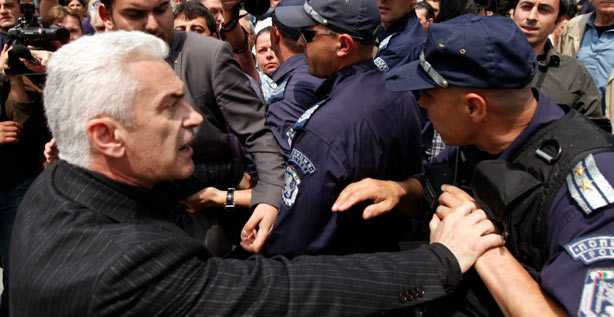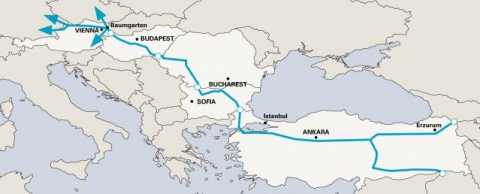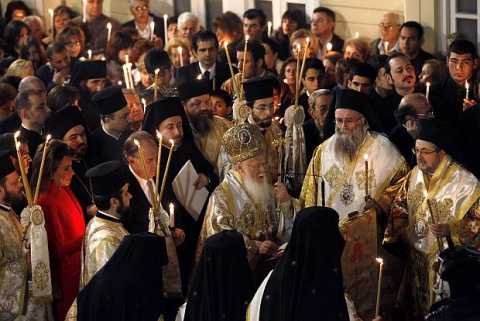Deputy Prime Minister Bülent Arınç has said there were racist attacks on Turks in Bulgaria and revealed that a diplomatic note of protest from Bulgaria over Turkish criticism on the treatment of Turks had been rejected by Ankara.

Nationalist party ATAKA leader Volen Siderov argues with a riot policeman as his supporters protest in front of Banya Bashi Mosque in Sofia during the Friday noon prayer on May 20, 2011. Supporters of ATAKA party and Turkish Muslims entered into clashes outside the mosque during a rally of the nationalists against the loudspeakers of the mosque, seriously injuring one Muslim.
Arınç said he had condemned what he called racist practices at the hands of the Bulgarian authorities against Turks in Bulgaria in a speech about a month ago. “I repeat the same thing today,” he said during a visit to the Bulgarian Mestanli Culture and Solidarity Association in the northwestern province of Bursa, his election district, on Sunday. “That speech was criticized in Bulgaria, particularly by [far-right ATAKA Party leader] Volen Siderov. They wanted to deliver a note of protest but we rejected their note,” Arınç said.
Bursa is home to Turks who migrated from Balkan countries during the loss of the Ottoman territories in Europe between the late 19th and early 20th centuries. The most recent arrival of Balkan Turks took place in 1989, when the communist regime in Bulgaria expelled approximately 300,000 Bulgarian Turks to Turkey. About one-third of these 300,000 Bulgarian Turkish refugees eventually settled in Bursa.
Arınç complained that racist attacks on Turks continue in Bulgaria. “Unfortunately, there are racist attacks in Bulgaria. ATAKA members are harming our people with their actions and words,” he said.
Arınç’s remarks came after far-right extremists from ATAKA attacked praying Turks in Sofia earlier this month. The Bulgarian group, attending a rally staged by ATAKA near the Banya Bashi mosque, attacked the Turks to protest the use of loudspeakers by the mosque. Reports said several people were injured and several ATAKA supporters were apprehended by the police.
via zaman





